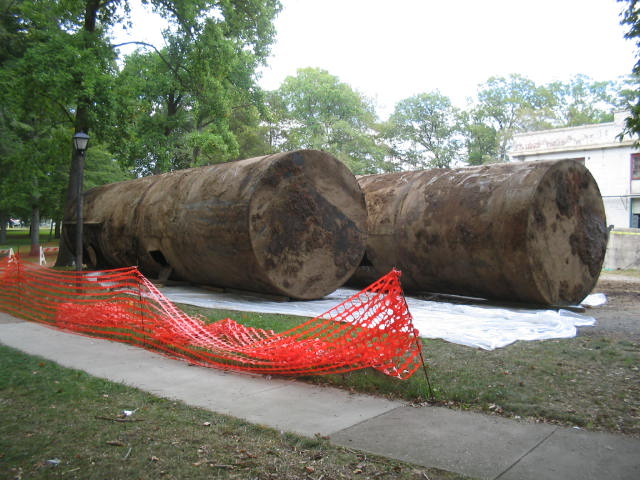Five Common Questions about NJ Oil Tanks
Oil tanks aren’t usually a common topic of conversation but if your property has an oil tank, you probably have some questions about it. Commercial oil tanks are very large and many of them are very old so the more you know about them, the better you can protect yourself, your business and your property. Here are the answers to five common questions about NJ oil tanks.
Why are oil tanks a concern?
Oil tanks are an environmental concern because if oil leaks from the tanks it will infect the soil and possibly the groundwater. Infected soil is bad for the environment and all living things near the infected soil. If not treated properly, the oil can continue to leak until it hits the groundwater causing a multitude of issues for all businesses and residents in the area. Once oil is in groundwater, it is very difficult to get out – it could take years. This is why it is essential to have your oil tank tested regularly or if the tank is not in use, it should be removed.
How do oil tanks corrode?
Oil tanks begin to corrode due to a process called electrolysis. Put simply, a rock lays alongside the tank over the years which leads to a hole being formed which usually starts out the size of a pin head which eventually grows to the size of a dime. When this hole grows it allows both oil to spill out and water to seep in. Once a tank starts to corrode it needs to be removed in order to avoid further damage.
How do you test an oil tank?
An oil tank is inspected multiple times. The initial inspection happens when the tank is installed. The next inspection happens when the oil is delivered. This inspection is simply just to make sure the right oil is being delivered to the correct tank. After this, your tank should be inspected yearly. A service technician will come to your property and test your tank with a vacuum test. If the tank fails it will be recommended that the tank be removed or repaired.
Why should I get my oil tank tested?
You should get your oil tank tested every year to avoid extensive damages and to keep you in compliance with the New Jersey DEP. By having your tank tested, you will be aware of whether or not your tank is causing problems. If your tank fails inspection, then you must have it removed or repaired before it causes a leak. Once a tank leaks or spills oil into the ground, then you have to go through the process of leaky underground storage tank removal and site remediation in order to keep your property in compliance. This can be an expensive process and if the tank leaks without you knowing, the damage can be extreme.
How does an oil tank affect my property?
An oil tank can affect your property in many ways. If the tank is old, it is more likely to leak and cause environmental problems. If the tank is underground, the maintenance of the tank is much more extensive. In general, if there is an oil tank on your property, it decreases the value of the property and can also increase your insurance rates. This is because of the potential risk the tank presents and the necessary steps that will have to be taken if the tank fails.
It’s important to know what’s going on with your oil tank as much as you can. You want to avoid having a leak or spill at all costs so make sure to have your tank tested regularly. T. Slack Environmental Services have been NJ oil tank experts for over 30 years. We’re here to provide you with all your tank services so contact us to get started.






